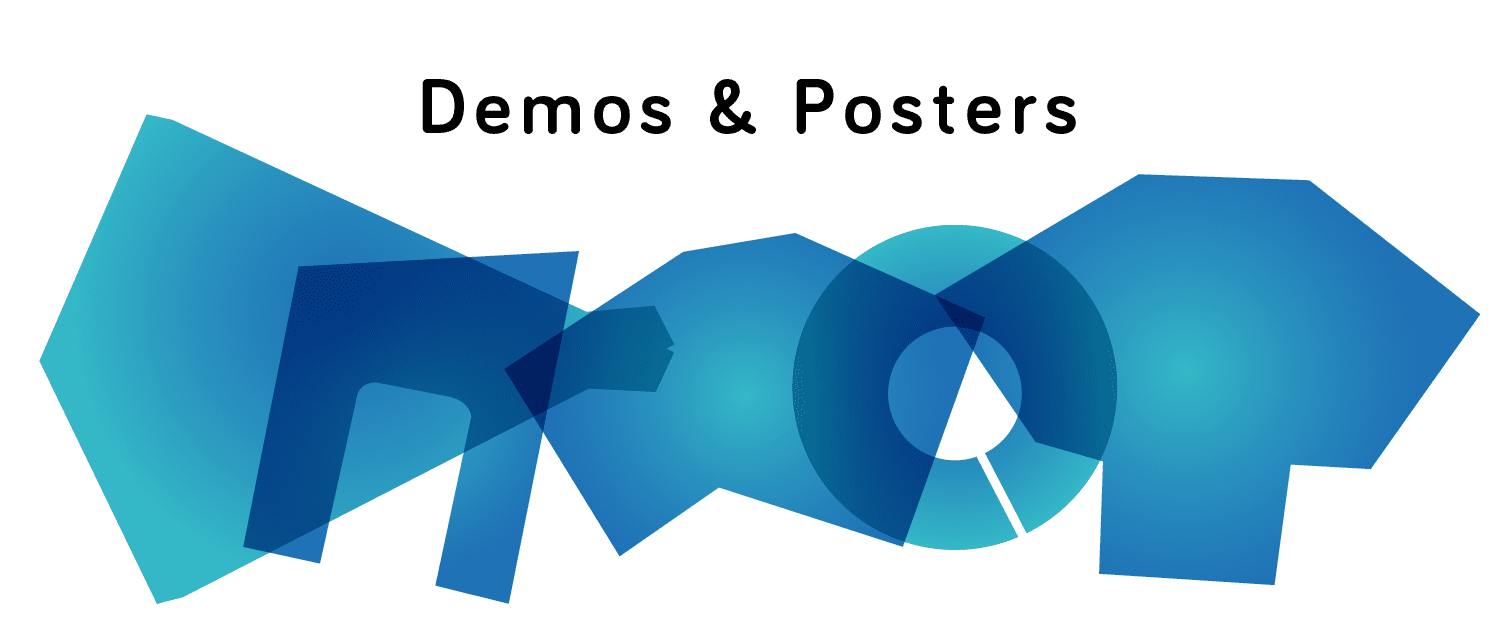The Demos and Posters Exhibit at the MAB gives artists, architects, planners, city officials, designers, researchers and other professionals the chance to exhibit their work to an international audience, including leading practitioners and researchers in the fields of Media Architecture & Urban Interaction Design. We are looking for early-stage prototypes, more mature work-in-progress or learnings from finished projects.
Possible exhibition formats include photos, posters (as a collection of images), videos, diagrams, and other formats that can be presented online. Demos and Posters could be used to showcase artworks in public space, media architecture elements such as facades or interactive installations, research projects, smart city & citizen or living lab experiments, design prototypes of products and services, city visions, conceptual (design) frameworks etc.
The focus of the Demos & Posters Exhibit is on sharing insights and learnings of upcoming, ongoing and recently finished projects. Exhibits should make these learnings, insights, goals or conceptual frameworks involved clear and invite visitors to reflect and discuss. A good submission explains the questions or issues it addresses, the proposed intervention and how this is supposed to work as well as insights or learnings derived from the project.
Demos and Posters will be exhibited online during the MAB from Jun 28 – Jul 2. Presenters will be given a spot in an online exhibition space, and are expected to be present online to discuss their work with visitors during the conference time slots reserved for the Demos and Posters exhibition (approximately 1 hour between June 30-July 2nd). We expect these periods to be lively sessions where presenters will receive feedback from an international audience.
Demos and Posters will be documented in the Media Architecture Online archive – a publicly accessible website. Those who wish to do so, can also submit an official abstract in ACM-format to be published in the official conference proceedings.
Important dates
- Call opens: 22 February 2021
- Submissions deadline: 8 May 2021
- Selections announced: 1 June 2021
- Camera-ready version: 15 June 2021
- Online exhibition opens: 28 June 2021
- Demos and posters online sessions: 30 June – 2 July 2021
Preparing your submission
Please note: Since the MAB20 will be an online event, we encourage the submissions of posters as a collection of images, instead of a single PDF file. These images will then be placed in the online exhibition environment and presented during the online sessions. You should use the images as content blocks. This will allow for a better presentation on online platforms.
The following information is required.
- Title & author(s)
- Clients, Site and/or context of implication
- Type of project
- Abstract: brief description of the work, central themes, proposed intervention and insights.
- For Posters: up to 6 images.
- For Demos: up to 6 images and a (max) 3-minute video demonstrating the project.
- The images for posters and demos should preferably have an aspect ratio of 16:9 (for example FullHD 1920×1080) and be saved as jpegs or pngs.
- (optional) ACM-format abstract for inclusion in conference proceedings, max. 6 pages.
Participants can send in a poster, a demo (video) or both.
Where to submit?
Click here to submit your poster / demo
MAB Theme: Futures Implied
The theme for the Media Architecture Biennale 2020 is Futures Implied. The following themes are therefore of specific interest:
- The Aesthetics and Poetics of Responsive Urban Spaces: Media architecture that contributes to a sense of place, deepening citizen’s understanding of and attachments to local sites, and making them more legible, imaginative and inclusive.
- Citizen’s digital rights in the era of platform ecologies: Media architecture that articulates public values and allows citizens to govern through digital platforms, rather than be governed by them.
- Playful & Artistic Civic Engagement: Media architecture that enacts people-centric interventions through which citizens themselves learn, negotiate and create innovations through play and games.
- Restorative Cities: Media architecture that enables societies to regenerate socially, ecologically, physiologically on multiple levels, from the individual to the city as an entity of systems.
- More-Than-Human Cities: Media architecture that embraces the well-being of the natural ecosystem as a whole.
About the Media Architecture Biennale
The Media Architecture Biennale is the world’s premier event on media architecture, urban interaction design, and urban informatics. It brings together architects, artists and designers, leading thinkers on urban design, key industry and government representatives as well as community activists. Together, they explore the design and role of media in the built environment and its implications for urban communities and ecosystems.
The MAB20, themed #FuturesImplied and originally planned for the fall of 2020, will take place on June 28th – July 2nd, 2021 in an online format. All of the major events such as workshops, keynotes, awards and paper sessions will be accessible online from locations throughout the world. We still hope to be able to accompany these with some smaller scale, on-site meet-ups in Amsterdam and Utrecht, depending on Covid regulations at that time. Our goal is to ensure we provide an exciting and safe experience to the MAB-Community.
More information & Contact
Demos & Posters Chairs
Juan Carlos Carvajal B., Media Architecture Institute | juan@mediaarchitecture.org
Join the MAB-Community on Facebook | Instagram | Twitter | LinkedIn
The Media Architecture Biennale 2020 is organized by the Amsterdam University of Applied Sciences in collaboration with Utrecht University.
Executive Committee & General Chair: Martijn de Waal, Amsterdam University of Applied Sciences; Frank Suurenbroek, Amsterdam University of Applied Sciences; Nanna Verhoeff, Utrecht University; and Michiel de Lange, Utrecht University. Program Chairs: Dave Colangelo, George Brown College Toronto; and Ava Fatah, UCL Bartlett.
Download PDF for this call – updated on April 12, 2021
